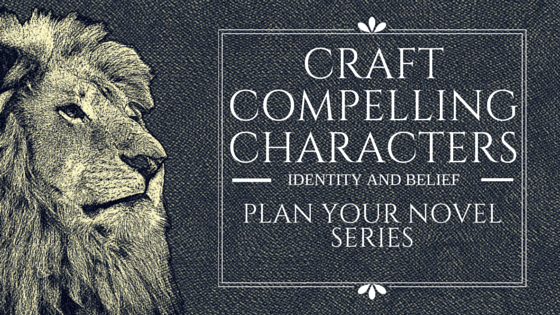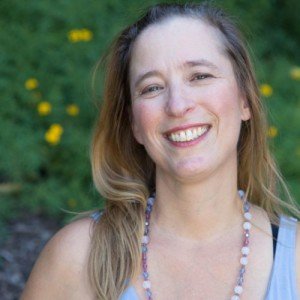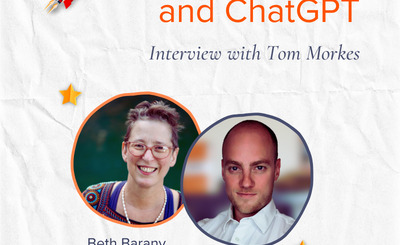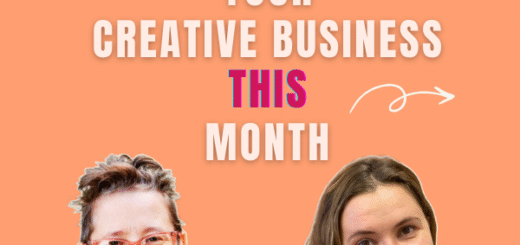Craft Compelling Characters: Show the change in identity + belief by Beth Barany
 This is an article is part of an occasional series on planning your novel. Our June course on planning your novel is happening now. You can still join us.
This is an article is part of an occasional series on planning your novel. Our June course on planning your novel is happening now. You can still join us.
I first published this article at Romance University last fall. Enjoy!
***
A story is defined by change. Who is your character now, at the start of the story? And who does she or he need to become to handle the rising challenges (conflicts, both internal and external) of the story?
Before I start on the characters’ core beliefs, I find it useful to first get clear on the basic framework of my story, such key things as theme and the goal, motivation, and conflict, and strengths for my main characters.
This insight on beliefs and identity I adapted from my training in NLP, (NLP stands for neuro-linguistic programming or patterning), and brought them into my writing and teaching novelists.
Brainstorm your thoughts on your main character’s the core beliefs, and the thoughts, words, feelings, and actions that stem from the core belief of your character at the start of your story and at the end of your story.
You may be wondering: How is knowing your characters’ starting and ending core beliefs relevant and important to strong story telling and a compelling character?
It’s the core beliefs that define how the character acts and reacts and how they make their decisions. It’s how they face conflict. In other words, especially in moments of conflict it helps you, the author, define and determine how your character reacts.
For example, in A Labyrinth of Love and Roses, at the beginning of the story Lili believes that work is the most important thing. This belief colors everything she says, does, feels, and thinks. She speaks and thinks constantly about her work. Her actions: working on her laptop all the time. Her feelings: upset about any distraction and torn and frustrated by her grandmother’s request to drop everything for a magical legacy.
Now think about your story: At the start of your story, your character has a core belief about herself that colors everything: her choices, how she sees the world, and reflects her relationship to herself and to life itself.
During the rising conflicts, her belief is challenged. She HAS to change her belief about herself to rise to meet and overcome each of the rising challenges, with a growing awareness of the shift.
The shift to the end belief usually doesn’t happen all at once, and is usually realized fully at the climax of the story.
CURRENT & END-OF-STORY CORE BELIEFS
Our core beliefs are unconscious beliefs that run our lives. They usually define our identity, how we see the world, and our deepest belief about our place in life.
We all have them. And there’s usually one that predominates at any one given time.
My NLP Master teacher likens this core belief to the bowl that holds the grapes.
All the grapes in the bowl are also core beliefs supported by the main one, the bowl.
Our core beliefs support us and sometimes get in the way when one part of us starts to change but faces internal resistance.
We often revise our core beliefs throughout our lives without noticing.
Then sometimes we do notice, and there’s a fight internally — and sometimes externally when our lives “fall apart” until we step into the new belief and our lives change.
Core beliefs are often stated as fact and start with “I am…” or “the world is…” When we state, “I am…” we are declaring our identity.

EXERCISE
Part 1: Do this Deep Dive exercise first this time so you can apply this co
ncept of core beliefs to your life and experience what I’m talking about. Then you’ll apply this to your characters.
Action: Think of time when you changed your belief about something, could be anything. For the purposes of this exercise, pick something simple. For example, I used to believe that peanut butter sandwiches every morning were the best breakfast for me. Now I don’t believe that. I believe it’s the worst breakfast for me. My behavior changed; the story I tell myself (my thoughts) changed; how I feel about what I used to eat (feelings), and about what I now eat (eggs and kale), changed (action).
Now think about your writing. What do you think, feel, and do in regards to your writing? How does this reflect your core belief? My NLP teacher says to look at your experiences to identify the belief that supports it.
In my case, I’m determined to be a prolific author. Therefore I work on multiple projects (action); I think about my projects (thoughts), and I feel excited about them (feelings). My core belief: “I am a fiction writer. I am creative. I am living my dream. I am worthy of living my dream.”
In the past, before I made this decision to be consciously prolific, I felt I’d let myself down, though I didn’t know exactly why; I was working at my writing in fits and starts; and I told myself I was too busy. My core belief: “I am waiting for permission… I am not ready… I am not good enough.”
What shifted? What changed for me? I saw another author stand up in front of us and say, “Go for it! If you want success as an author, do the work. Now’s the time. I’m prolific. I do the work. So can you.”
I heard her say that and thought, “Why not? Why am I having this pity party? I’m as capable as she is, as savvy as she is. And I don’t feel as confident as her – I don’t have her experience of already having two dozen books in the marketplace – but I can start. If I don’t start, will I feel as stuck and disappointed in myself as I do now in a year?” This awareness got me into action.
Soon after I set up a writing schedule for myself, and a few months later I willingly jumped into a new project that resulted in my first romance novella being published in GARGOYLE: Three Enchanting Romance Novellas. I would have never considered writing a romance novella if I hadn’t already decided to take some risks and be open to writing more. (Now I’ve written and published three more romance novellas and am planning my fifth.)
Now your turn: Notice your current core belief around your writing. Has it shifted in the recent past? If so, notice the thoughts, feelings, and actions that show the before and the after. What is the core belief reflected in your experience before and after?
If you haven’t experienced a shift, but would like to, define the experience you’d like to have.
In your mind’s eye, step into the future version of you, in six months or a year. What is she thinking, feeling, and doing? And what is the core belief that she has to allow her to have that experience?
Step back into your present experience as a writer, then again step into the future version of yourself.
Do this a few times, back and forth, and notice what this is like.
Now step one more time into the future version of yourself and have her look at the past version.
What advice does she have to give you now?
Step back into your current self and receive that advice. Notice what that’s like.
Get up and move, allowing your body to integrate this information in just the ways you know how, and at the speed of integration that is right for you.
Now let’s look at your character’s core beliefs.
Part 2: Explore your main characters’ core belief at the start of the story and his or her thoughts, feelings, and actions around this belief.
For this exercise, think of a horizontal timeline. It can even help to draw a line.
On one side, imagine your character at the start of the story.
- What does she know to be true about herself and the world?
- How does she feel about that?
- What does she say to herself and/or other about that?
- What action (or non action) does she take in regards to that belief?
- Now imagine your character at the end of story. She’s faced all her conflicts and challenges and succeeded. It’s okay if you don’t know how yet. You’ll figure that out later! That’s what you’ll discover in writing the story.
Answer the questions again.
- What does she know to be true about herself and the world?
- How does she feel about that?
- What does she say to herself and/or other about that?
- What action (or non action) does she take in regards to that belief?
Hopefully, there will be a huge difference from the beginning to the end.
Notice if there is or isn’t.
Share your notes and observations in the comments below. I’d love to hear them!






